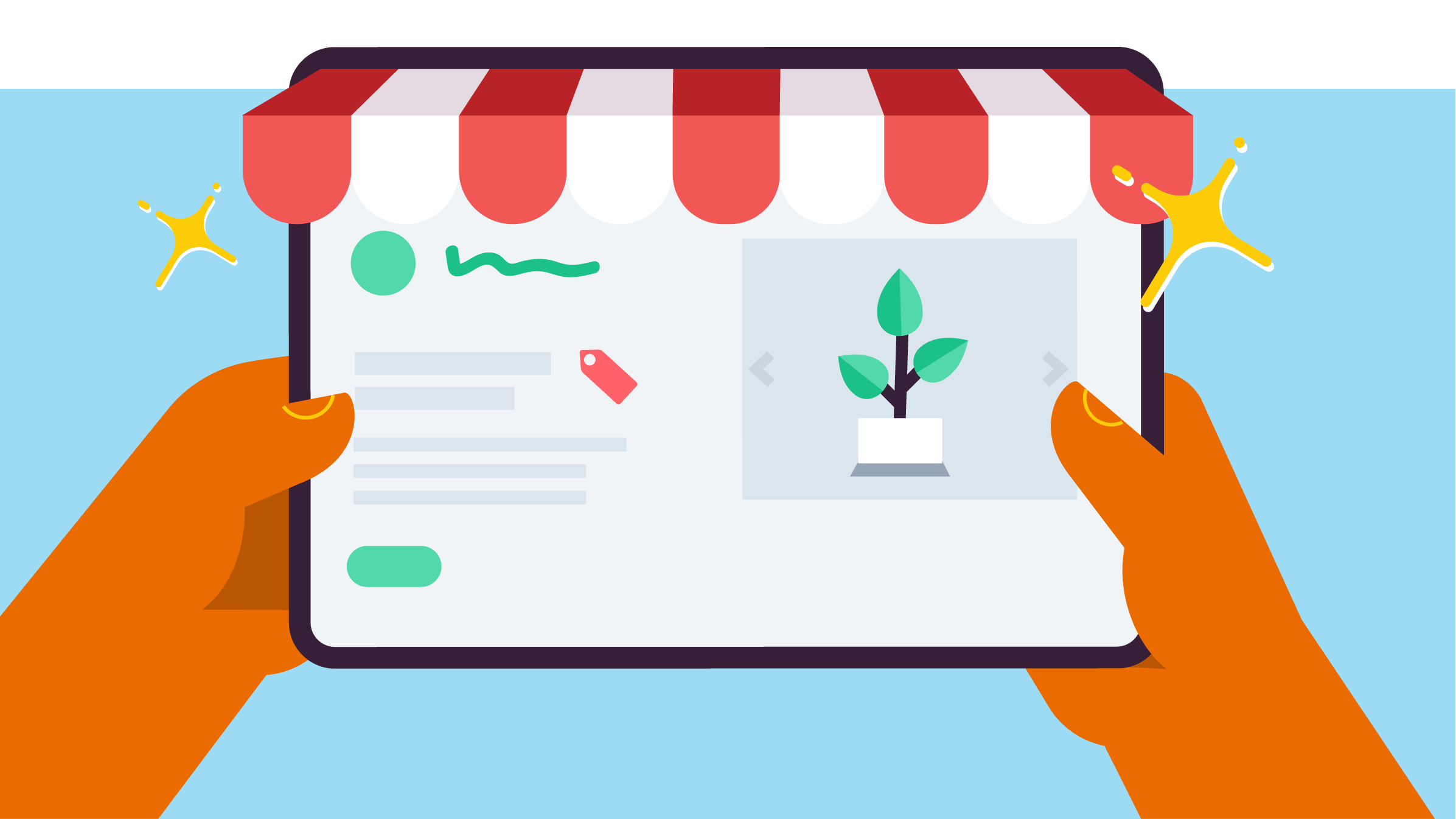What is an ecommerce business?
Learn what ecommerce is, and what you need to build an ecommerce business for goods or services.

Published Wednesday 27 March 2024
Ecommerce definition
An ecommerce (electronic commerce) business sells goods and services online, carrying out its sales transactions and money handling over the internet instead of in person.
Retail is the most common form of ecommerce, where businesses sell goods on their website or through digital marketplaces like Amazon, Alibaba or Facebook. The buyer browses, selects and buys products online for the seller to deliver via courier.
Service businesses increasingly offer ecommerce transactions, too. This is done through online invoicing and payments.
So what is E-business?
Just to confuse things, you may also hear talk of E-business. This is a term for any business function or process that you do digitally. So all ecommerce is e-business, because you’re selling digitally. But you may also do other things digitally, like accounting, marketing, or procurement. They’re examples of e-business, too.
Advantages of ecommerce
- It’s super convenient for customers
- Invoices get paid faster
- Retail customers self serve, so you can sell while you sleep
- Online businesses have lower running costs
- It’s generally easier to sell outside of region
- Electronic transactions can make record-keeping easier
Disadvantages of ecommerce
- You’ll need to pay transaction fees
- Retail customers expect you to pick up the tab on shipping
- Returns become more complicated and expensive to process
- Keeping up to date with tech changes can be draining
- You may need to charge and remit sales taxes when selling abroad
- Transaction and shipping fees complicate profitability measurement
Learn more about the advantages and disadvantages of online business.
What you need for an ecommerce business
Because the very definition of ecommerce is that you transact over the internet, you’ll need a few tools for communicating prices and accepting payments online.
Retail ecommerce
- Website where shoppers can browse products
- Shopping cart that allows shoppers to select items for purchase
- Secure online payment method
- Delivery to your customer
- Terms of trade, covering things like returns policies
Digital marketplaces often supply many of these services, such as online payment and delivery services. But be aware that they will take a cut of sales and may be slow to pass payments through to you.
Businesses that want to build their own shop can use off-the-shelf ecommerce platforms to process customer orders and payments.
Service or manufacturing ecommerce
- Online invoicing
- Secure online payment
- Invoice payment terms that make online payments a condition
Online invoicing is a feature on accounting software like Xero. To include a “pay-now” or “direct debit” option, you’ll need to attach a payment service. Those merchant services cost nothing to set up, however they charge transaction fees.
Nailing the accounting
You don’t get ecommerce without transaction fees. Courier costs are a further factor for businesses that need to deliver goods. Use digital accounting tools like Xero and A2X to keep track and report the true cost of each sale.
Connecting in an online sales world
Connecting with people and building a loyal customer base is very different for an ecommerce business. With endless options online, the customer’s digital experience and strength of your brand is paramount.
If you’re looking to build a bulletproof ecommerce business, find out how to optimize your online selling strategy and connect with your online community.
Resources for starting an ecommerce business
Disclaimer
Xero does not provide accounting, tax, business or legal advice. This guide has been provided for information purposes only. You should consult your own professional advisors for advice directly relating to your business or before taking action in relation to any of the content provided.
Start using Xero for free
Access Xero features for 30 days, then decide which plan best suits your business.